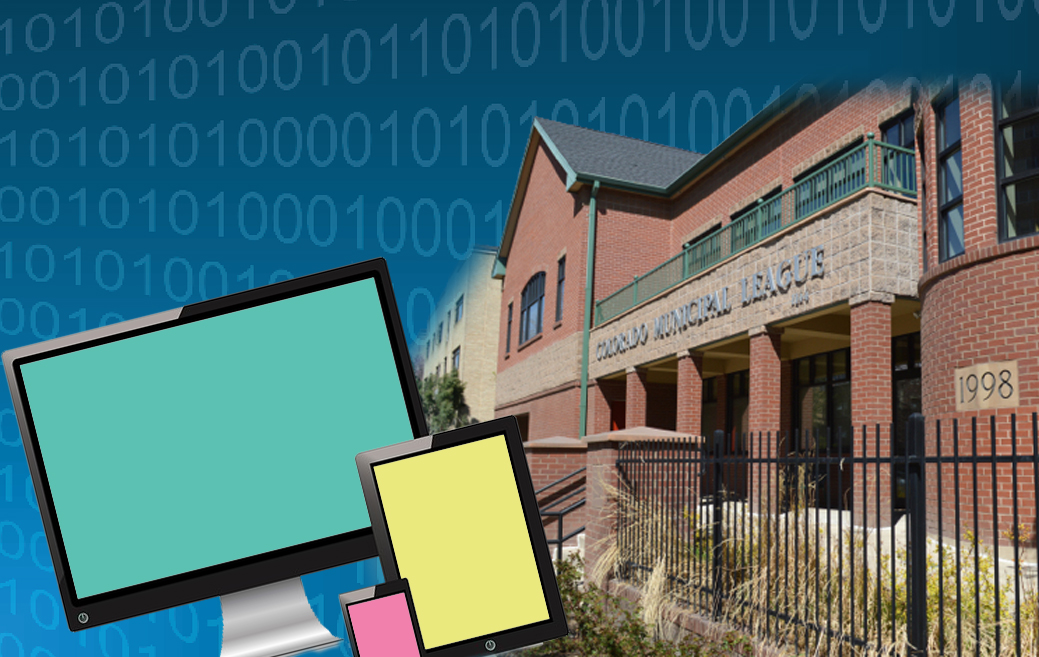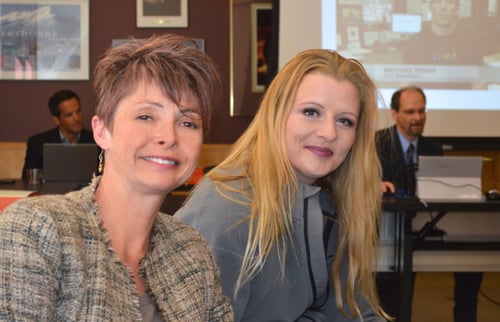Colorado Local Governments Talk Tech: How to Pull Off a City-Wide System Overhaul
By NRC on April 8, 2016

-By Angelica Wedell – National Research Center, Inc.
As new technologies continue to transform our communities, local government organizations have no choice but to meet the demands of change. This is why the City of Littleton undertook the mammoth task of a city-wide transition from Microsoft Outlook to Google in 2014.
“For the most part, Cities and Counties have a done a good job of keeping up to date,” said City of Littleton Information Services Director Ken Price (pictured left), invited by Colorado Municipal League (CML) and Alliance for Innovation (AFI) to share his city’s story with others.
As productivity software and platforms are behind-the-scenes of everyday work-flow, the City of Littleton’s changeover “impacted every single user,” said Price. The transition required the City to focus on change management alongside project management.
The switch to Google was doled out in three phases over three months. The City used multiple mass email campaigns to spread the word and placed considerable effort into training staff. Littleton used live video and prepared volunteers from every department to teach their peers how to use the Google Apps for Government system. “We learned the better way to do the training is hands-on,” Price commented. Nearly a year after launch, a survey showed a 60 percent approval rate for the new system. Now two years later, Price said he hasn’t heard any complaints.
Google Sales Manager Jeff Brown (pictured right) explained that the tech giant has developed a system specifically for governments and that benefits of Google Apps include access to email, calendar and shared work documents from any device, at any time and from anywhere. It also includes unlimited user-built websites, largely increased storage space and improved email record keeping capabilities.
Other Colorado cities, towns and villages are preparing to make similar changes in technology. Not all of them are using Google for their system upgrade, but those attending CML’s Tech Talk agreed that the most daunting part of the change is the transition itself.
“We want employees to feel excited for the change, not scared by it,” said Julie Pasillas, Resources and Sustainability Coord. for the Town of Firestone, which is currently working to implement a whole new system.
(Pictured above: Pascale Pring and Julie Pasillas of the Town of Firestone)
For other jurisdictions looking to make a massive technology shift, here are some tips from local government leaders who have already experienced the transition:
- Include your users from day one. “When we first went to Google, we bought [a certain number of licenses and put them on laptops,” said Ken Price. “Then we did what we called ‘brown bags’ where staff could come at lunch time and experience Google. They could log in and play with it. And this was long before we made the decision to go to Google. Involve your users right from day one and I think the transition will go much smoother.”
- Involve all stakeholders. “You have to involve people from every department, not just IT. Yes, you need IT champions, but every department needs to have a champion for the transition,” said Julie Pasillas.
- Use the process for team building. “Training strengthened the team,” said Pascale Pring, Director of Corporate Services for the Town of Firestone. She added that the transition process at Firestone allowed staff to see each other’s hidden talents and helped to improve work-relationships.
- Take the opportunity to future-proof. “Don’t just think about where you are now. Think about where you want to go,” said Pasillas, who recommends that local governments consider how new systems will satisfy their demands over the next ten years.
- Continuously train staff over time. “It’s all part of that change management. For Littleton, it was about supporting staff and reinforcing them even after we made the transition,” Ken Price said.
(Pictured: Denver capitol as seen from CML)
Related Articles:
- Data Envy? Don't Worry; Your Data Are Big Enough!
- Alliance for Innovation Presents Webinar on Accountability and Transparency in Local Government
- New Innovation Lab Draws Progressive Solutions for Civic Trust and Engagement
National Research Center, Inc. ( NRC ) is a leading research and evaluation firm focusing on the information requirements of the public sector, including non-profit agencies, health care providers, foundations and local governments. Visit our home on the Web at www.n-r-c.com. Check out our blog for more news, tips and human-interest stories from NRC.
Popular posts
Sign-up for Updates
You May Also Like
These Related Stories

How Can You Compare Survey Results to Other Communities?

NRC Rocks Out in Nashville with National League of Cities






